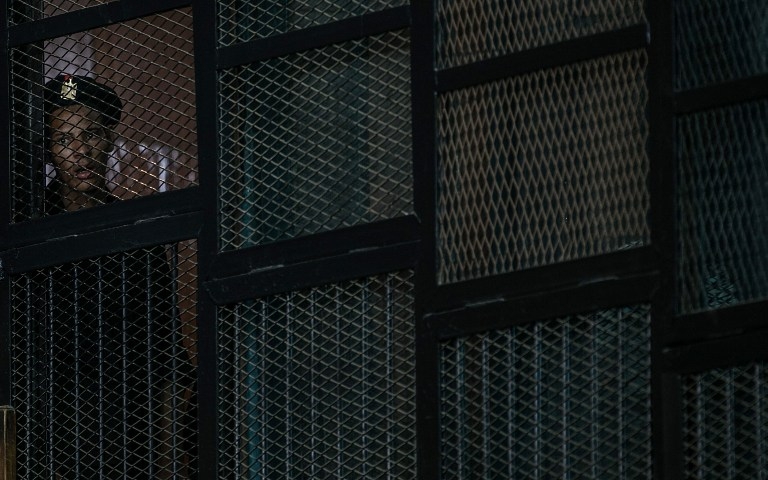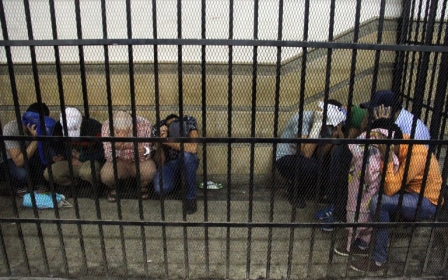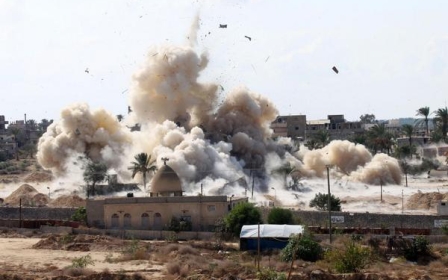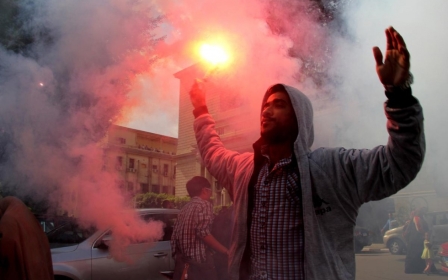Egypt, Muslim Brotherhood to trade blows in Geneva

The United Nations will examine Egypt’s human rights record on Wednesday as part of a periodic review activists are hoping will cast light on abuses committed during four years of upheaval.
UN member state representatives, human rights groups, and Egyptian officials will gather in Geneva to discuss a report compiled by Egypt’s foreign ministry regarding progress made on human rights issues including the country’s continued use of the death penalty, allegations of police torture, questions about freedom of religion and belief and sexual harassment.
Egypt’s foreign ministry said the review would mark the beginning of “intensive preparation” to show “full commitment to and respect of international conventions and fundamental rights and freedoms.”
The foreign ministry also said their report contains “images that illustrate acts of violence and terrorism carried out by elements of the Muslim Brotherhood in Egypt”.
The Muslim Brotherhood and its political wing, the Freedom and Justice Party (FJP), both dissolved and banned by the Egyptian authorities, have also submitted a report for the UN review.
The Brotherhood’s legal team, Irvine Thanvi Natas solicitors, said: “The UN has a historic opportunity to hold the Egyptian military regime to account for the crimes committed since the coup”.
The Brotherhood report is said to “expose the atrocious reality of the military dictatorship ruling Egypt”, which includes “a detailed review of the human rights record of Egypt under president Morsi and appraises the record of the military regime”.
Egyptian officials in Geneva are expected to face tough questions from UN member states who have expressed concern about allegations of torture as well as the crackdown against opposition groups and journalists that ensued after the military overthrew the government of Mohamed Morsi last year.
Also likely to generate criticism is a protest law introduced in 2013 inhibiting demonstrations without prior notification as well as the emergence of military trials for civilians.
Since Abdel Fattah el-Sisi took control in Egypt through a military coup in July 2013, more than 20,000 people have been detained and more than 1,000 killed in a wide-reaching crackdown on political dissent, according to Human Rights Watch.
The government has cracked down on demonstrations, tightened control of state media and prosecuted journalists.
Earlier this week, the Egyptian government banned a pressure group that had pushed for the reinstatement of Morsi.
The country has also been ranked as the third deadliest country for journalists in 2013, according to the Committee to Protect Journalists (CPJ).
New MEE newsletter: Jerusalem Dispatch
Sign up to get the latest insights and analysis on Israel-Palestine, alongside Turkey Unpacked and other MEE newsletters
Middle East Eye delivers independent and unrivalled coverage and analysis of the Middle East, North Africa and beyond. To learn more about republishing this content and the associated fees, please fill out this form. More about MEE can be found here.




